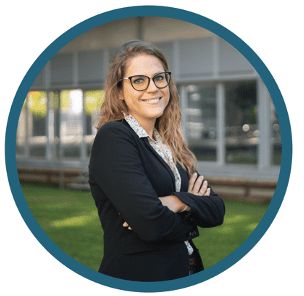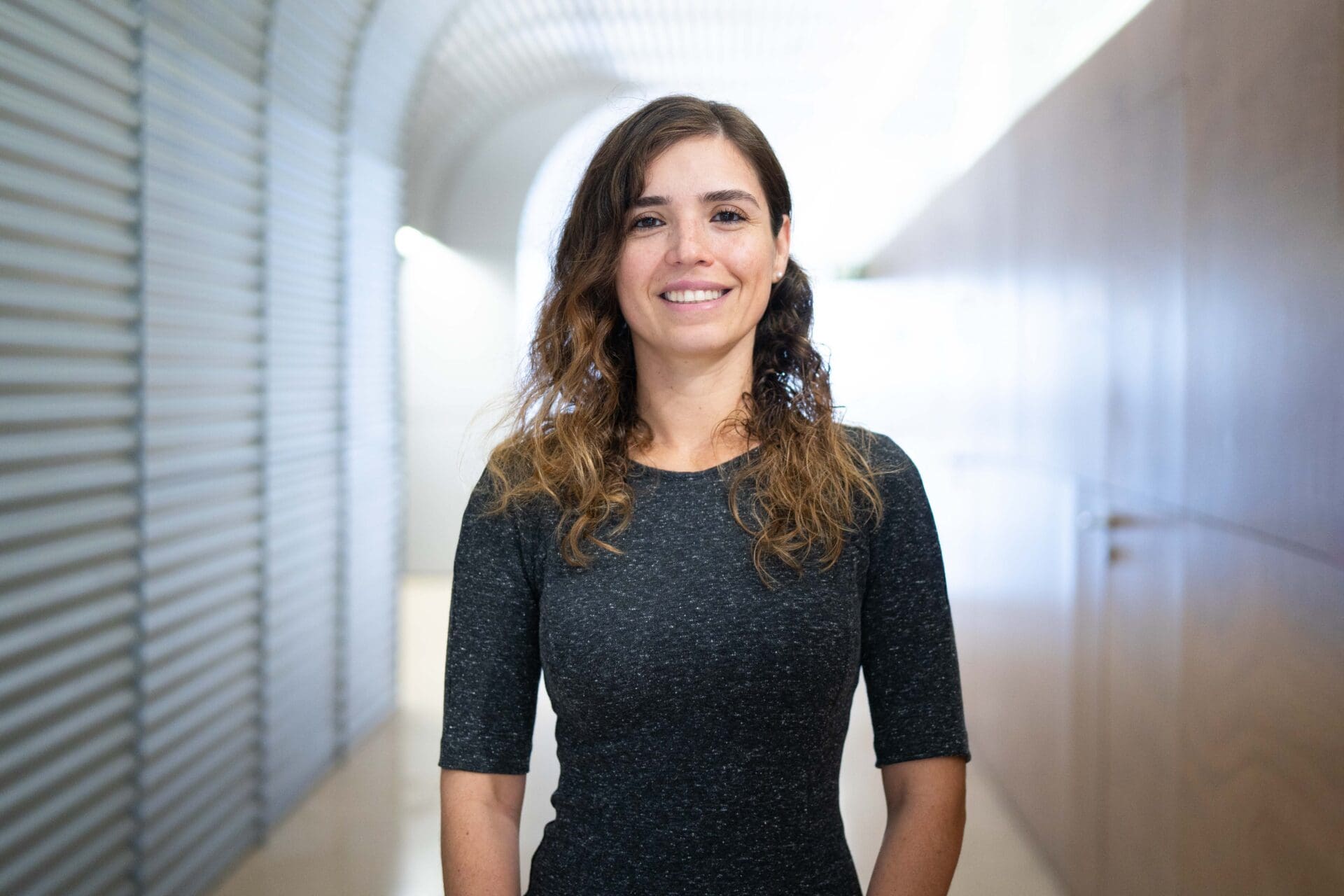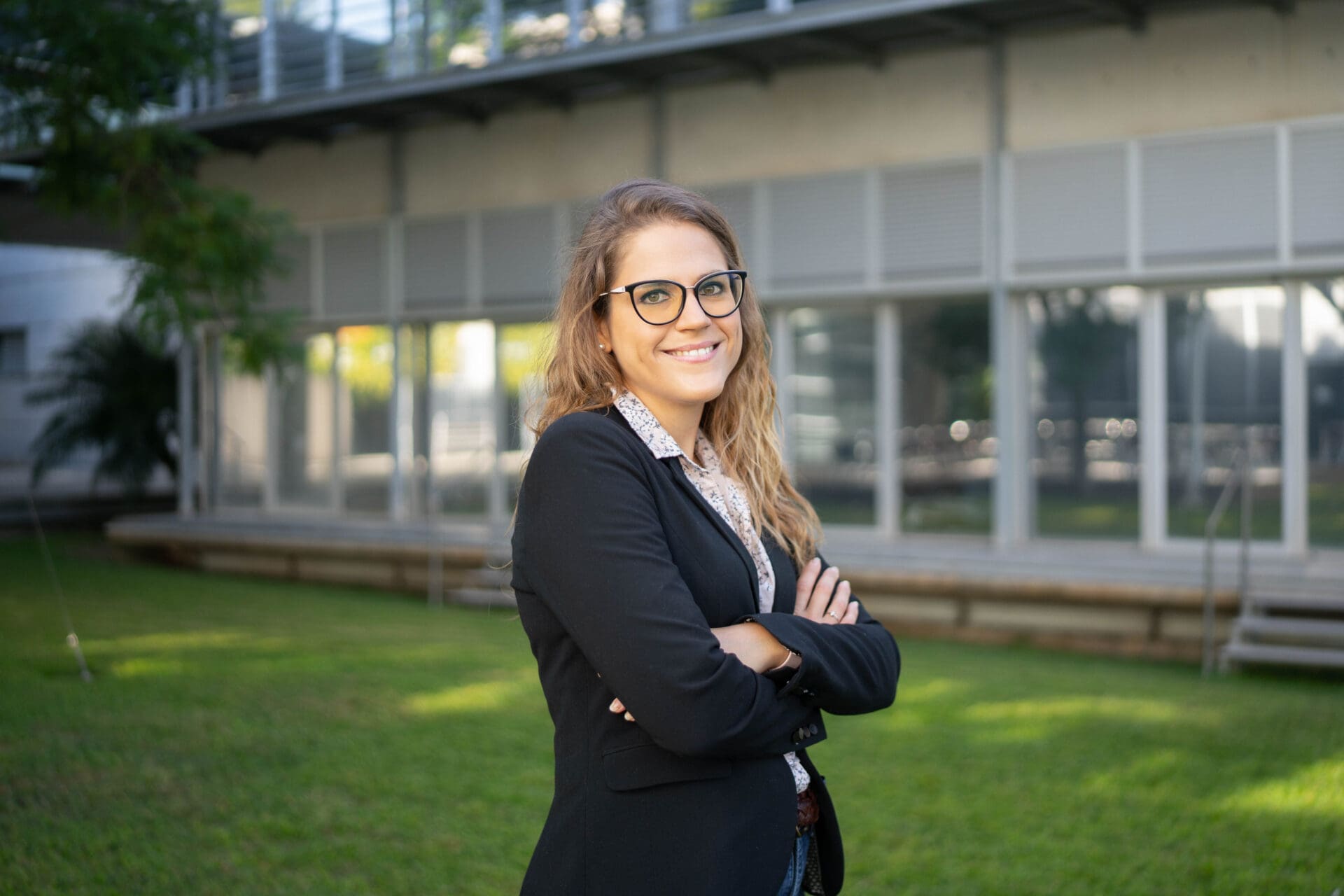Dr. Casadevall, ICIQ’s new Junior Leader ”La Caixa”
 Dr. Carla Casadevall has been awarded with ”La Caixa” Junior Leader Fellowship and is developing the project “Catalyst-functionalized polymeric microreactors for the production of solar fuels and chemicals.”
Dr. Carla Casadevall has been awarded with ”La Caixa” Junior Leader Fellowship and is developing the project “Catalyst-functionalized polymeric microreactors for the production of solar fuels and chemicals.”
After obtaining her PhD in 2019 at ICIQ, she worked for three years as a postdoctoral researcher at the University of Cambridge in the group of Prof. Erwin Reisner developing biohybrid catalysts for sustainable solar fuel production using water and carbon dioxide as feedstock, where she was awarded a Marie Skłodowska–Curie Individual Fellowship.
- What first got you interested in science?
My interest in science started at a very early age. As a child, I was a very curious kid. I was always observing everything surrounding me, asking myself questions, and challenging myself. Actually, when I was 5 I used to do experiments at home with cleaning products and other stuff I could find around, and I even caught my bed on fire! Then, when I was older, I started making “hydrogen bombs” with “salfuman” (hydrochloric acid) in my grandparents’ garden. I also watched every science program I could catch on TV, such as “Beakman’s World” or the experiments that Dani Jimenez was doing at “El club”. And then growing up doing science subjects and technology at school, I realized this was my passion and that I wanted to become a scientist and help improve the world. This was very surprising for my family, since nobody likes science. But I realized that if I could make of my passion my career, I would be very happy, so I decided to become a scientist!
- Tell us about your research. What excites you most about it?
I like my research a lot. I mean, you need to be the first one to believe in what you are doing. It really makes a difference!
For example, I am working in the field of artificial photosynthesis to produce fuels and chemicals more sustainably. This is a scorching topic because of the awareness of the need to transition to a sustainable society to achieve carbon neutrality.
Concretely, I am developing catalyst-modified polymeric microreactors for solar fuels and chemicals. And this is very exciting because it is a new concept in the field of energy production. It lies at the interface of several disciplines, such as chemistry, supramolecular chemistry, catalysis, photochemistry, and reactivity at interfaces. Moreover, you can imagine the repercussion if we learn how to develop modular microreactors and functionalize them with different catalysts to carry out reactivity at will. Then, we can learn how to control or construct them with a “latent” activity. Envisioning self-contained vesicles imply potential control of reactivity initiated inside an organism. Then, a plethora of applications will go beyond the field of energy and synthesis. The possibilities of applications for personalized medicine, biomedicine, nanorobotics… are inspiring.
- What impact would you like your research to have?
I want my research to make a difference by changing the way of conceptualizing catalytic systems for artificial photosynthesis to produce solar fuels and chemicals in a sustainable manner. And develop applications beyond those fields to tackle the current challenges that we are facing.
- What has been the biggest challenge you have faced?
I have faced many challenges in my life, but I think that the worse experiences are the ones that define who we are and how we deal with situations. Personally, I had a hard time when both my mum and my granny, who is like a mother to me, got sick at the same time, with cancer and Alzheimer’s disease, respectively. Although this was an awful period, and it caught in the middle of my PhD, keeping up with my research was really helpful.
Professionally, one of the biggest challenges was the isolation of an intermediate after the rate-determining step of the water oxidation reaction catalyzed by a ruthenium complex. This was a breakthrough in the field because it was the first time such an elusive intermediate was isolated, allowing direct monitor the Oxygen-Oxygen bond formation in the water oxidation reaction, which had been a topic of discussion for decades. But this also was a breakthrough in my career due to the impact of the finding.
Another big challenge was dealing with the pandemic in another country at the beginning of my postdoc. I started the postdoc in September 2019 with all the induction time that it takes to move abroad, settle down and start working on a new topic (I was changing from molecular catalysts in my PhD to materials and biohybrid catalysts in the postdoc), and then at the beginning of March COVID started and the lab was closed for about 4 months. Nevertheless, overall, the experience and Cambridge help me work on a new topic and train myself in heterogeneous and biological systems.
- What’s the best advice you have received in your career?
I was fortunate to have great mentors and colleagues who shared valuable advice and knowledge with me. Two pieces of advice have had a huge impact on my trajectory. First, always bear in mind what you will need for the next step of your career and push yourself to achieve it. I like to give this advice to my students too. And nothing comes for granted, and you need to work very hard to achieve the knowledge and skills for your next career step.
Also, I was always encouraged to work on my ideas and develop and evolve them. So, if you write down the ideas, then you can think about them, let them mature and evolve, and they are worth then start working on them to make them a reality.
Related news

Let's create a brighter future
Join our team to work with renowned researchers, tackle groundbreaking
projects and contribute to meaningful scientific advancements







 23-06-2023
23-06-2023 














